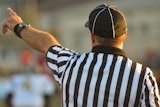
U.S. representative Paul Tonko (D-NY) this week held a roundtable with student-athletes, coaches and administrators at Siena College in Colonie, NY, to discuss the adverse impacts of gambling on collegiate sports.
Tonko's visit comes amid his introduction of the SAFE Bet Act, which would impose consumer protections on the sports betting industry.
“Sports bettors are taking out their losses on college athletes at alarming rates,” Tonko said, according to the Times Union. “The goal here is to prevent the crime before it occurs, so that the public is safe to enjoy gambling as a recreational activity and the athletes are free to play without the fear of being bombarded with harassment and threats.”
Tonko's statement is backed by a recent NCAA study of online harassment, which found that 12% of all all online abuse was related to sports betting. The study also found that 80% of the abuse was aimed at student basketball players participating in March Madness, with female athletes receiving three times the abuse of their male counterparts.
“Last year, we got ripped into a lot,” said Brendan Coyle, a forward on the Siena men’s basketball team. “A variety of things, from death threats to just fans being upset after a loss.”
Jennifer McClintock, a cross-country athlete at Siena, said she and her friends, on in particular, were overwhelmed with abusive messages.
“By the end of the season, he had to turn off all social media because people were sending him messages before and after games,” McClintock said. “Like, ‘If you don’t go out and score 20 points tonight then I’m going to lose my bet, so this is all on you. I’m putting money on the line because of you.’”
Coyle recounted being approached by students on campus who had placed bets on his team's performance.
“It’s 11 o’clock at night,” Coyle said. “I’m just trying to get back to my room. I don’t really care what you do with your money, but it’s just a lot.”
Director of the Siena College Research Institute Don Levy noted that two-thirds of respondents to the institute's recent American Sports Fanship Survey called online sports betting a "clear and present danger."
“We clearly found that young people, most especially young men, are the more ardent practitioners of this activity,” Levy said. “When we asked those young people questions about the impact on our lives, we found that of young men who practice online sports betting, about a quarter of those told us that they are ashamed of some of the bets they’ve made.”





































